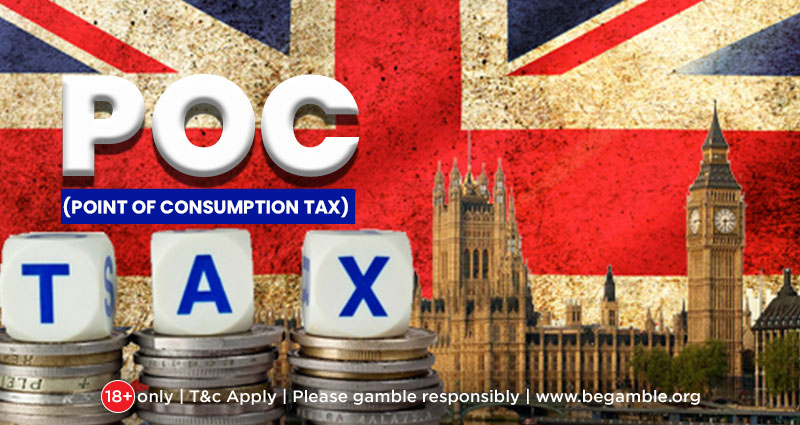Is Gambling Income Taxable Uk
There are only two things in life which are certain: death and taxes. The latter definitely seems to crop up on just about everything we do, but what about our gambling winnings?
- Is Gambling Income Taxable Uk Pension
- Is Gambling Income Taxable Uk Tax
- Irs Gambling Income
- Is Gambling Income Taxable Uk Income
See full list on bingoport.co.uk. Not it is not taxable in the UK, unless you are a bookmaker, or (perhaps) run a club where you play poker. Takeaway #2: Casual gamblers report total gambling winnings on line 21 of Form 1040 (Other Income), and report total gambling losses as an itemized deduction on Schedule A. There are several possible tax consequences from separate reporting of winnings and losses. I will mention a few. Jun 02, 2020 Taxes on Slot Machine Winnings in UK. As a resident of the United Kingdom, your gambling winnings won’t be taxed. Unlike the USA mentioned above, you’ll be allowed to keep whatever it is that you have won and earned in Britain, even in case you are a poker pro. Then again, you won’t be able to deduct any losses you might collect.
The issue of taxing gambling income essentially comes down to location. Thankfully, in the United Kingdom, we don't have to pay tax on our gambling winnings, but there’s a little more to it – including some history!
The story behind taxing gambling winnings
Taxing gambling winnings isn’t the same for every country. Over in the United States, for example, all income from gambling must be reported to the IRS (their version of the HMRC) including lotteries, raffles, horse races, casinos, trips, and cash prizes.
Up until 2001, residents in the UK were subject to “betting duty”. After legalising betting shops in the 1960s, a tax of 9% was levied on all winnings.
This lasted for four decades until, then Chancellor of the Exchequer, Gordon Brown abolished the taxes. The changes came into effect officially on January 1st 2002, in what was considered a move to bolster the economy.
The effects of online gambling
Part of Mr Brown’s decision was based on the previous actions of larger UK online gambling operators. Many of these operators moved offshore to avoid the taxes, which meant that players could bet there instead without being taxed.
As part of the Chancellor’s changes, a 15% levy was placed on the operators’ gross profits, thus abolishing the need for taxes. The benefits were passed on to us!
Taxing the operators
As more UK gambling operators moved to areas like the Isle of Man, Curacao, Malta and Gibraltar to avoid the 15% levy, the UK decided to introduce a new tax to further the economy even more. In 2014, they introduced the Point of Consumption Tax.
What is the Point of Consumption Tax?
The Point of Consumption Tax is a combination of the Gambling (Licensing and Advertising) Act 2014 and Remote Gaming Duty.
The Remote Gaming Duty is the 15% levy on all operators’ gross profits, while the Gambling (Licensing and Advertising) Act 2014 is an update to the original Gambling Act 2005, which related to the licensing and advertising of gambling.
The 2014 update was brought in to account for “remote gambling”, that is, online gambling on mobile devices and computers.
Will the tax on UK gambling return?
The tax on gambling income in the UK was abolished as a way of improving the UK economy, so it is unlikely that the tax will return.
Currently, the UK gambling industry turns over £14 billion a year, so it would be a mistake at this stage to reintroduce the taxes.
When the tax was abolished, an extra £300 million was generated for the UK economy. With online gambling growing more and more, this is a number that should continue rising for years to come.
In addition to this, for all taxes in the UK, the government must also offer allowances for any losses. This means that reintroducing the tax could potentially cost money in more ways than just preventing the practice; it would also mean that people could try to claim back for their gambling losses – not ideal!
Where in the world is gambling taxed?
There are small taxes in France for poker, horse racing and sports, with players being charged 2% and 7.5% respectively. Horse racing winnings are also taxed in South Africa at 6%.
Some countries tax lottery winnings only, including Greece, which is 10%, or a jaw-dropping 50% for all lottery winnings over €4,000 in Slovenia.
The USA and Latvia tie with a straight gambling tax of 25% for all winnings, while in Spain, gambling winnings are not taxed, but they must be declared as income.
Deductions from lottery winnings in the UK
In the UK, there is no tax on lottery winnings. However, players should be aware that, just like any other savings, the interest on their winnings will be taxed.
Where else can I go to avoid gambling tax?
The good news is if you visit Commonwealth countries such as Australia, Canada and Malta, as well as Germany, Austria, Belgium, Bulgaria, Denmark, Italy and Sweden, then you won’t have to pay any taxes on your winnings.
The interesting part is, like the UK, many of these countries’ operators have to pay tax. However, in some of the abovementioned countries, the tax payable for operators is astronomical!
Germany, for example, can pay operating taxes of up to 90%. France, Australia and Luxembourg pay 80 – suddenly Kenya doesn’t seem so bad!
Where else are gambling operators taxed?
If you’re heading over to Kenya on your holidays, it’s wise not to bring up taxes with casino owners. Up until 2016, the gambling operators’ tax in Kenya was only 12%, but come 2017, it was hiked to an incredible 35%!
This actually came as a surprise to operators, who thought they were in for an eye-watering 50% tax in their casinos.
However, the tax hike was introduced for noble reasons – it was cited as a boost for the Kenyan economy, while it was also designed to encourage younger citizens to take up careers in other industries besides gambling.
Cambodia also explored new options in 2016, having seen a 38% increase in gambling revenue during this period. With gambling only legal in casinos and to foreign visitors, the country was in discussions to lower tax rates for operators to a “single figure” sum.

Your gambling winnings
Once you have claimed your winnings, they are yours to do whatever you want. Be aware, however, that just like lottery winnings, any interest on your bank account containing them will be taxed.
It’s hard to believe we’ve only been free of taxes since 2001, but it’s safe to say it’s made gambling better for all of us!
All countries and governments have their own online gambling tax policies and legislation so we need to look at this question from a global perspective. Firstly we’ll cover the situation in the UK and following that look at how things may differ in the rest of the world.

Do you have to pay tax on your gambling winnings?
UK Gambling Taxes
Key Points
- All winnings either online or offline are tax free!
- Any betting tax abolished in 2001 by Gordon Brown.
- Tax used to be on bookies but they passed to punters.
- Bookmakers must now pay 15% POI tax but not punters.
- POI tax on any games of chance increased from 15% to 21% but again not for punters.

Is Gambling Income Taxable Uk Pension
In the UK any and all winnings from gambling – either online or at betting shops – are entirely tax free and do not need to be declared as part of any tax return.
This has been the case since the then Chancellor of the Exchequer Gordon Brown’s budget of 2001, when he abolished Betting Duty which had stood at 6.75%. That duty was removed in an attempt to persuade bookmakers not to move their operations overseas and therefore take jobs and revenue away from the UK economy.
All of that is not to say that there is no tax involved when it comes to gambling in the UK, however, and there is a ‘point of consumption’ tax related to the activity. This does not affect punters themselves, though, and will be dealt with separately further down this page.
Will the situation ever change? Generally speaking there is little chance that this situation will be reversed, either, as the UK tax system is simply not built in such a way that taxing gambling winnings would be viable. This is the case as it is fairly standard within the system that if tax is levied on the income or profit made through an activity, then there must also be an allowance made against losses through the same activity.
With gambling being an activity where overall more losses are made by punters than winnings, therefore, such a change in the tax legislation would cost the UK government revenue. As a result, it is quite simply not something which would be considered. Your betting, casino, slot machine, poker and bingo winnings are yours to keep tax free.
What About Professional Gamblers?
It may seem logical that the tax situation would be different for professional gamblers than it is for occasional punters. When it comes to pure winnings from betting, however, that quite simply is not the case. As we have discussed above these winnings are not taxable and this remains true even for a ‘professional gambler’. That is because HMRC do not recognise professional gambling as a taxable trade.
In fact, within their most up to date ‘Business Income Manual’, HMRC clearly define their position on professional gambling:
‘The fact that a taxpayer has a system by which they place their bets, or that they are sufficiently successful to earn a living by gambling does not make their activities a trade.’ BIM22017
Gambling winnings, therefore, remain free of tax regardless of whether they make up an individual’s main source of income. Where the situation can get a little more complicated, however, is in the case of income related to gambling but not actually direct winnings from gambling. Appearance fees paid to poker players for playing at certain tournaments, for instance, represent payment for a service provided to the tournament organisers and as such may be taxable.
Away from the UK, too, tax laws and legislation do differ and it would benefit a professional gambler outside of the UK to research the specific rules and regulations within their own country.
UK Point of Consumption Tax

As we mentioned earlier, Betting Duty for gamblers was abolished in 2001 and was at that time replaced by a 15% tax on gross profits for bookmakers and gambling providers. That tax was initially charged on a ‘point of supply’ basis, meaning that if the bookmaker or company were not based in the UK, then they were not liable. This situation has more recently changed, however.
From the latter part of 2014, the tax on bookmakers’ profits was changed to a ‘point of consumption’ tax by a combination of the Gambling (Licensing and Advertising) Act 2014 and by the introduction of ‘Remote Gaming Duty’. This means that regardless of where they themselves are based, providers must pay a 15% duty on any bets placed by UK customers.
Is Gambling Income Taxable Uk Tax
In the 2018 budget chancellor George Osborne announced that the point of consumption tax would rise from 15% up to 21% for all games of chance but sports betting would remain at 15%, for now.
Gambling Taxes In The Rest Of The World
Irs Gambling Income
| Country | Taxes |
|---|---|
| Austria | No |
| Australia | No |
| Australia | No |
| Belgium | No |
| Bulgaria | No |
| Canada | No |
| Czech Republic | No |
| Denmark | No |
| Finland | No |
| France | 2% on poker cash pots, 7.5% on sports (+1.8% levy) and 7.5% on horse racing (+8% levy) |
| Germany | No |
| Greece | No except lottery at 10% |
| Hungary | No |
| Ireland | Bookies pay 1% on all bets – not winnings. |
| Italy | No |
| Kenya | No – bookies must pay 7.5% on their winnings. |
| Latvia | 25% |
| Luxembourg | No |
| Macau | 40% |
| Malta | No |
| Nigeria | 20% |
| Netherlands | No expect lottery at 29% above €454 |
| Portugal | No expect lottery at up to 35% |
| Romania | 1% up to 66,750 RON, additional 16% of surpassing margin up to 445,000, additional 25% of surpassing margin over 445,000 RON |
| Slovenia | No expect lottery at 50% if more than €4,000 |
| Spain | No but must declare winnings as income for taxation |
| Sweden | No |
| South Africa | No except 6% on horse racing. |
| UK | No |
| USA | 25% |
Is Gambling Income Taxable Uk Income
As the above table shows, where various types of gambling are legal there are a variety of different attitudes towards taxation on winnings from those forms of betting. If your country is not listed then it’s likely gambling is not strictly legal and there is therefore no taxation laws.